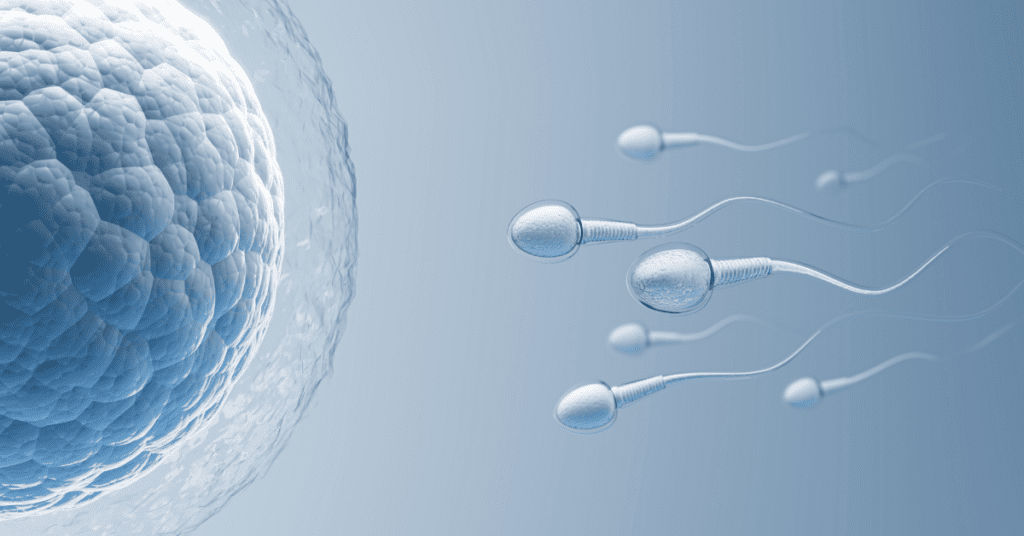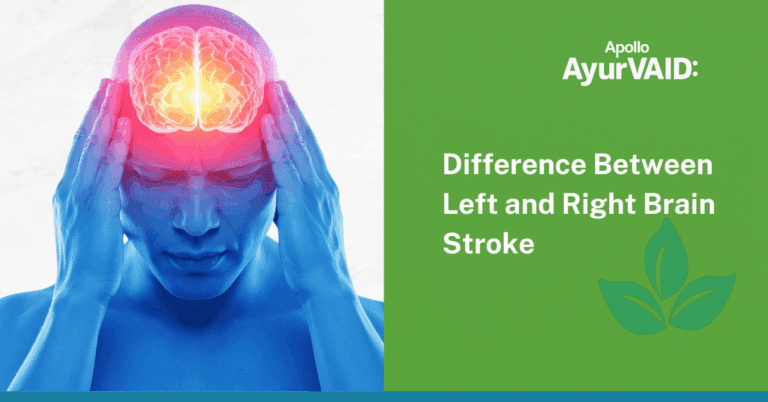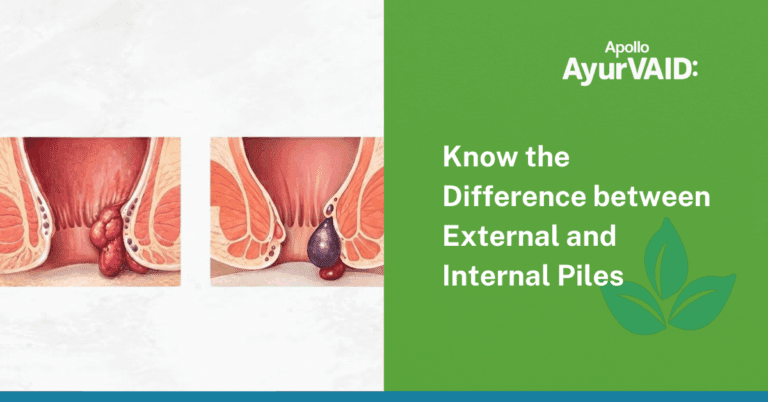Male infertility is a common concern that affects many couples worldwide. In Ayurveda, male infertility is believed to be caused by imbalances in the body’s doshas and dhatus, especially Shukra dhatu. Ayurveda offers a holistic approach to treating male infertility, focusing on restoring the balance of the doshas, improving overall reproductive health, and addressing underlying causes.

Understanding Male Infertility in Ayurveda
Conception depends on the fertility potential of both the male and female partner. The male is directly responsible in about 30-40%, the female in about 40-55%, and both are responsible in about 10% of cases. The remaining 10% is unexplained. Male infertility is due to low sperm production, abnormal sperm function, or blockages that prevent the delivery of sperm. Illnesses, injuries, chronic health problems, lifestyle choices, and other factors can play a role in causing male infertility. A hormone imbalance or blockage of sperm movement can cause a lack of sperm. Ayurveda also explained in detail infertility, its cause pathophysiology, and treatment under the head of Vajikarana. Vajikarana or Vrishya chikitsa is one of eight major specialties of the Ashtanga Ayurveda. This subject is concerned with aphrodisiacs, virility, and improving the health of progeny.
According to Ayurveda, male infertility is primarily attributed to an imbalance in the Pitta and Vata doshas, which govern the reproductive system. This imbalance can be caused by factors such as poor diet, unhealthy lifestyle, stress, hormonal imbalances, and environmental toxins. Ayurveda aims to address these imbalances and promote optimal reproductive health.

Ayurvedic Treatment for Male Infertility
Ayurveda offers two main approaches for the management of male infertility:
Shamana Chikitsa and Shodhana Chikitsa. Shamana Chikitsa involves the use of dietary and lifestyle modifications, along with specific herbs and herbal formulations, to restore balance to the body’s doshas and improve overall reproductive health. Vajikarana tantra, a branch of Ayurveda, is also emphasized for the management of oligospermia, using rasayanas and vajikara dravyas (virilificatory or aphrodisiacs drugs) along with Panchakarma therapies.
Shamana Chikitsa
Ayurveda uses herbs and herbal formulations to enhance male fertility, including Ashwagandha, Shatavari, Gokshura, Safed Musli, and Kapikacchu. These herbs have rejuvenating, aphrodisiac, and spermatogenic properties, enhancing sperm count, motility, and quality, which shold be taken only under Ayurveda doctor’s recommendations. In Shamana Chikitsa, certain foods are recommended for their shukrala and vrishya properties, that is improving the sperm count and motility, while lifestyle modifications like Abhyanga, Vyayama, Snana, Nidra, and Suvichara are recommended. Mamsa (meat) and Ghrita (ghee) have Shukarajanana effects or increasing the spem production and quality, while Panchakarma such as Asthapana Basti has Shukrashodhana or detoxification properties.
Shodhana Chikitsa
Shodhana Chikitsa involves purification procedures commonly known as Panchakarma are employed for the treatment of shukra doshas, klaibya, and oligospermia. These procedures are performed before using Vajikarana drugs. Abhyanga, a traditional Ayurvedic massage using herbal oils, is known to improve blood circulation, reduce stress, and promote relaxation. Regular abhyanga can help in improving sperm quality and overall reproductive health. This is done before Panchakarma procedures like Virechana (therapeutic purgation) and Basti (medicated enema) help in eliminating toxins from the body, improving digestion, and balancing the doshas. These therapies can enhance the overall reproductive health and increase the chances of conception.
Dietary and Lifestyle Modifications
Ayurveda emphasizes the importance of a balanced diet and a healthy lifestyle in improving male fertility. It recommends consuming nutrient-rich foods, such as fresh fruits, vegetables, whole grains, nuts, and seeds. Avoiding processed foods, excessive caffeine, alcohol, and smoking is also advised. Regular exercise, stress management techniques like yoga and meditation, and adequate sleep are essential for overall reproductive health. Yoga and pranayama (breathing exercises) play a significant role in Ayurvedic treatment for male infertility. Specific yoga asanas, such as Bhujangasana (Cobra Pose), Dhanurasana (Bow Pose), and Vajrasana (Diamond Pose), help in improving blood flow to the reproductive organs and balancing the hormonal system. Pranayama techniques like Kapalabhati (Skull Shining Breath) and Nadi Shodhana (Alternate Nostril Breathing) help in reducing stress and promoting overall well-being.
Additional Ayurvedic Herbs & Their Benefits
Here are more herbs recommended for male infertility:
- Shilajit: Increases stamina, testosterone, and sperm quality; rejuvenates the body.
- Yashtimadhu (Licorice): Improves reproductive function and balances hormones.
- Vidarikand (Pueraria tuberosa): Enhances sperm production and libido.
- Kaunch Beej (Mucuna pruriens seeds): Strengthens reproductive tissues and reduces oxidative stress.
Ginseng (Ashwagandha variant or Indian Ginseng): Boosts energy, sperm motility, and fertility.
Can Ayurveda treat male infertility effectively?
Yes! Ayurveda offers a holistic approach to treating male infertility by addressing the underlying imbalances in the body and promoting overall reproductive health. Through the use of herbal remedies, dietary modifications, lifestyle changes, Panchakarma therapies, and practices like abhyanga, yoga, and pranayama, Ayurveda aims to improve sperm count, motility, and quality. It is important to note that the effectiveness of Ayurvedic treatments may vary depending on the individual’s specific condition and underlying causes of infertility. It is advisable to consult with a qualified Ayurvedic practitioner for personalized treatment and guidance. Ayurveda can complement modern medical approaches to male infertility and provide an integrative approach to improving reproductive health.
References:
- Journal of AYURVEDA, Oct-Dec, 2014; 149: 4.ISSN2321-0435, National Institute of Ayurveda, Gov. of India Madhav Vilas Palace, Amer Road, Jaipur-302 002.
- Yadavji Trikamji, Editor, Charak Samhita of Agnivesha, Sutrasthana: Chapter 25, Verse 40.Reprint ed. Varanasi: Chau- khambha Prakashan, 2011.
- Agnivesha, Charaka Samhita Part 2, Chikitsasthan 2,4/51, Aacharya Rajeshwar Shastri, Upadhyaya, Pandeya, Varanasi, Chaukhamba Surbharati Prakashan, edition reprint, 1998; 92






